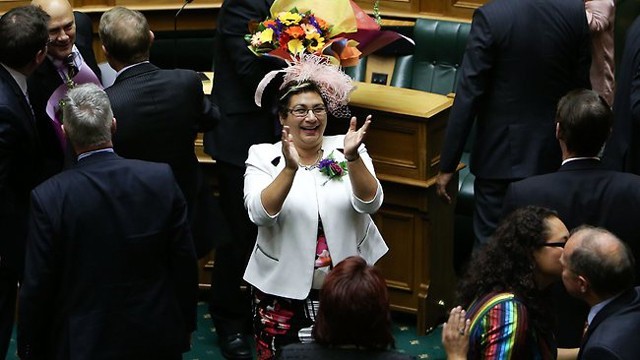We are so busy making sure there is milk in the fridge, the dog doesn’t eat the mini-vac and the kids can spell homogenous that we don’t tend to think about history.
It is one of those things, like aeronautics, we are happy to leave to other people.
But every now and then something catches our attention enough to change that – and for a moment we pop our heads up from the flood of daily details and see our lives in the context of history.
And the debate around whether same-sex couples should be allowed to marry is profound enough to make us do just that.
It is a question that marks out some of the contested ground of our time and drives even the most reluctant of us to take a position on either side.
And it is a question that has been making a lot of headlines this year.
In April, same-sex marriage was legalised in New Zealand, its passage through parliament accompanied by politicians launching into a Maori love song.
And next month the nation’s first same-sex marriage will take place on an Air New Zealand flight between Queenstown and Auckland, along with a celebrity appearance by Jesse Tyler Ferguson from Modern Family.
This week legislation to allow same-sex marriage was passed in the British House of Lords and, assuming the Queen approves, the first same-sex marriage will follow sometime in 2014.
Opponents are already promising to mobilise against David Cameron at the next election.
And here in Australia same-sex marriage is shaping up as an issue in the upcoming Australian Federal Election.
Kevin Rudd has reinvented himself as a supporter and has vowed to allow Labor parliamentarians a conscience vote on the issue.
Tony Abbott on the other hand is an opponent of same-sex marriage and has bound Liberal MPs to that position.
As for the rest of us, our opinions are so divided and vehement that there has been little genuine debate on the issue beyond whether traditional marriage, by definition, requires a man and a woman.
This is a strange and unhelpful argument.
Definitions, and not least of all of marriage, are fluid things. They change all the time, as a glance at the Oxford English Dictionary will rapidly show.
Consider for a moment that very common word “nice”.
Over time, according to the dons at Oxford, “nice” has had a lot of very different meanings. It has meant ignorant or foolish, extravagant, cowardly and shy.
In fact it didn’t take on its present meaning until relatively recently.
Then there’s promiscuous, which used to mean confused or undistinguished.
Bully used to be a word you used to describe someone you liked or loved.
A pedant was a schoolmaster and nervous meant strong or vigorous.
And as for marriage itself, that is practice that pre-dates recorded history and its meaning has changed significantly along the way.
In biblical times the definition of marriage was something significantly different enough to allow King Solomon to have 700 wives – as well as 300 concubines.
Think about that for a moment.
Could anyone have shared his deep inner feelings, hopes, uncertainties and toothbrush with 700 women?
Could he have watched Love Actually that many times?
Could he have remembered 700 anniversaries, star signs and mother’s, sister’s husbands, brother’s names?
Clearly what it meant to be married was different back then.
And more recently definitions of marriage have included that wives have been the property of husbands.
That wives have had no legal identity of their own and that husbands, by definition, have had the right to beat and rape their wives.
And at different times in history the definition of marriage has included legitimate child marriage and forced marriage, but not included marriage between consenting adults of different religions or races.
So when we talk about “traditional marriage”, which tradition, from which time, and which place, are we talking about?
Because there simply is not one fixed “traditional marriage”.
And given the history of marriage I think there would be few of us who would argue that is a bad thing.
To me the more sensible discussion, when it comes to same-sex marriage, is not about definitions, or traditions, it is about the key elements of marriage that we value now.
What is it about marriage that we want to protect and to promote?
And let’s not confuse ourselves by arguing that it has something to do with the heterosexual ability to procreate.
If the ability to have kids was the condition we valued about marriage we wouldn’t allow anyone over 55 to marry for a start, let alone anyone with a vasectomy or a pathological fear of booster seats.
What I value, for one, about marriage is its celebration and recognition of love and of the commitment to love.
That is the heart of marriage.
That is why we go through all the hoops and in-law Christmases we do.
And why on earth would we deny that to anyone?
Same-sex marriage is not a question of religion, of tradition, or of definition.
It is a question of fundamental human rights and equality and its recognition in law will ultimately have a place in history alongside the referendum of 1967 that led to Aboriginal people being recognised in the constitution.
Author: Griffin Longley
Publication: The West Australian
Date: 19 July 2013

